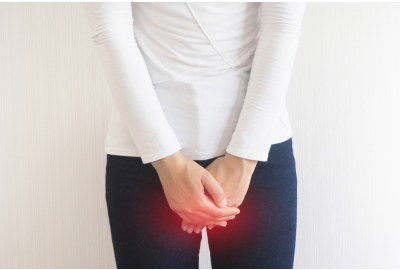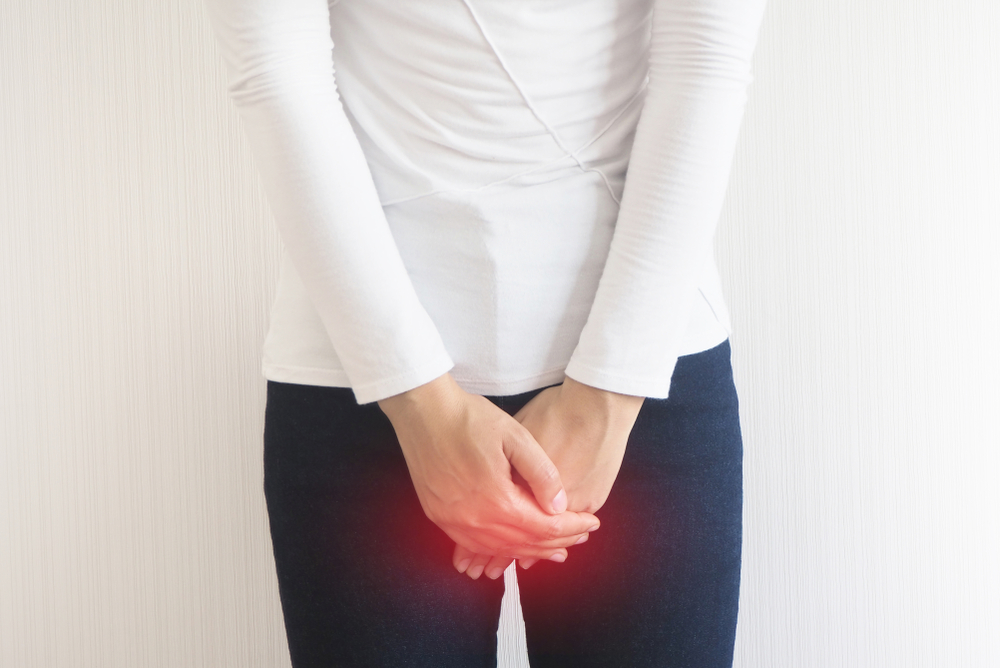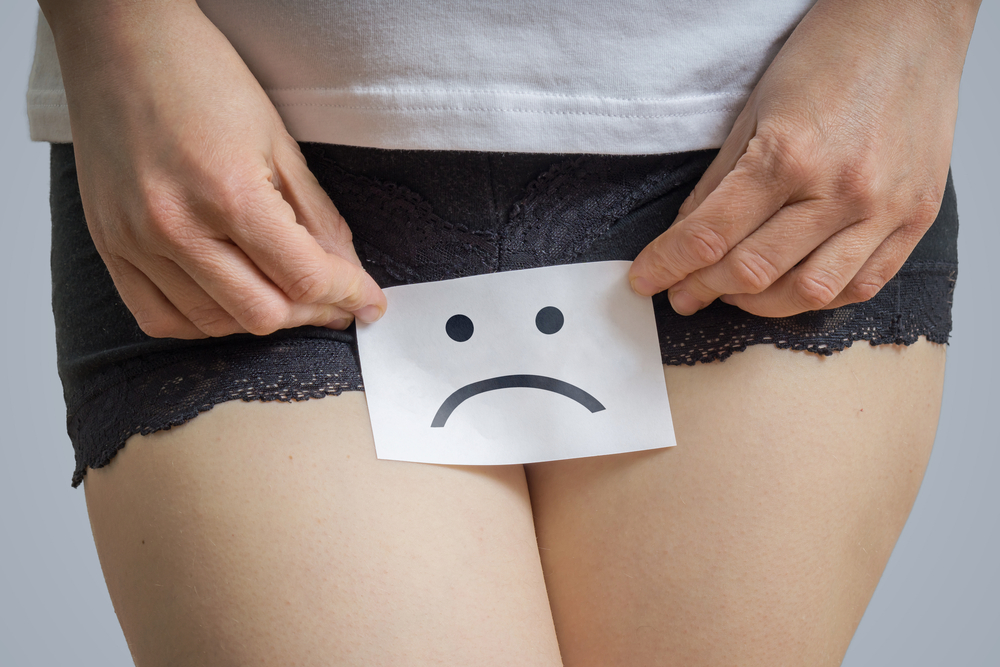
Menopause and Vaginal Dryness: Understanding the Connection
As we age, it’s not uncommon for our bodies to get thirsty. Menopause brings along a surge in estrogen, and our once well-hydrated skin, hair, and vaginas can go from Amazon to Sahara in a flash. Indeed, vaginal dryness is a common yet massively under-reported condition that triggers a litany of frustrations—chief among them pain and spotting during intercourse. Even though it’s one of the menopause symptoms that likes to linger, it’s also one you can grab by the horns and conquer with a few simple tips.

Why Vaginal Dryness Occurs During Menopause
Vaginal dryness is a common sign of vulvovaginal atrophy, a condition in which the vaginal tissue becomes thinner, less flexible, and more delicate. It is caused by a natural dip in the circulation of estrogen throughout your body, which happens when your ovaries become less active and stop producing eggs each month. It is the estrogen in our bloodstream that helps keep the vaginal tissue thick, resilient, and well-moisturized. Bright side: this seemingly annoying surge in estrogen isn’t all bad — it also means no more periods!
As we’ve already mentioned, many women report experiencing vaginal dryness beginning in perimenopause and through post-menopause. One reason why vaginal dryness tends to stay around longer than other symptoms is because it actually causes lasting, physical changes, including atrophy of the vaginal tissue. But we all know vaginal tissue is amazingly resilient, and there are some things you can do to slow vaginal dryness and keep it from negatively affecting your life and to help you get lasting menopause relief.
What to Do if You Have Vaginal Dryness
If you are experiencing dryness, just remember that, regardless of the culprit, you’re one of many millions of women in the same shoes and the condition is not likely linked to anything serious. Here are some things you can do to improve the situation so you can keep the irritation in check.
-
See Your Doctor—Even if you’re pretty certain the dryness is caused by menopause, it’s still important to chat with your doctor about it. Unfortunately, although it’s one of the most common conditions of postmenopausal women, vulvovaginal atrophy and its symptoms are among the least reported. Getting an accurate diagnosis is key, as vaginal dryness is associated with various other women’s health concerns, including yeast infections and vaginitis. An accurate diagnosis is vital to finding an appropriate treatment.
-
Try Topical Medications—Your doctor may recommend that you try topical vaginal estrogens to help curb vaginal dryness. Unlike oral treatments, topicals—creams, rings, tablets, etc.—are minimally absorbed into the bloodstream. While we know that too little estrogen causes many issues, too much of it during menopause is not good either. In fact, oral estrogen has been linked to heart disease and breast cancer. Luckily, due to the fact that it doesn’t absorb much into the bloodstream, topical estrogen creams are not likely to increase the risk of cancer or heart issues.
-
Over-the-Counter Products—There are many vaginal moisturizer products available to help you get quick relief to minimize daily discomfort and help mitigate pain during sex. Vaginal lubricants can help create temporary moisture to help deter pain, dryness, irritation, and itching during intercourse. We recommend using water-based lubricants, as they tend to be safer for people with skin sensitivities and are more akin to your natural moisture than oil-based lubricants.
-
Ditch Certain Products—Contact irritants can drastically worsen vaginal dryness and irritation, so you want to make sure you eliminate them from your routine as much as possible. That includes any scented soaps, wipes, douches, or bath products that can negatively affect the good bacteria that helps regulate moisture in the vagina. Instead, look for gentle feminine products that don’t use any fragrances or irritants. Switching to a hypoallergenic laundry detergent can also help, since it may be leaving irritants behind on your clean undies, leading to further dryness.
Have Regular Sex—While it seems counterintuitive, the experts actually recommend having more sex to help prevent dryness. Routine sexual activity one to two times a week—alone or with a partner—helps keep the vaginal tissue flexible, engaged and naturally lubricated.

One last important message: If you have vaginal dryness, don’t be ashamed. The very best thing you can do to prevent it from causing problems in your life is to attack it head-on by talking to your doctor and trying a few of the above solutions. At Sofia & Grace, you’ll find a community of women here to support you during every stage of life.